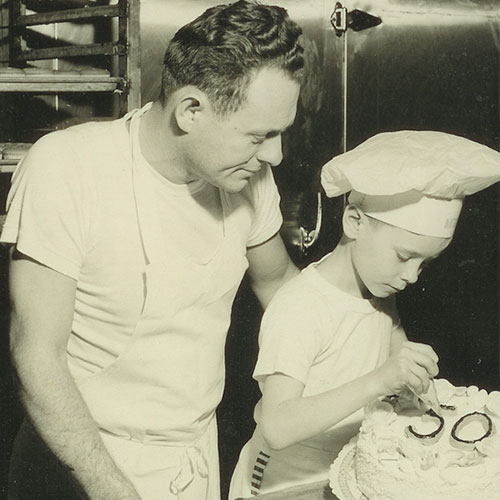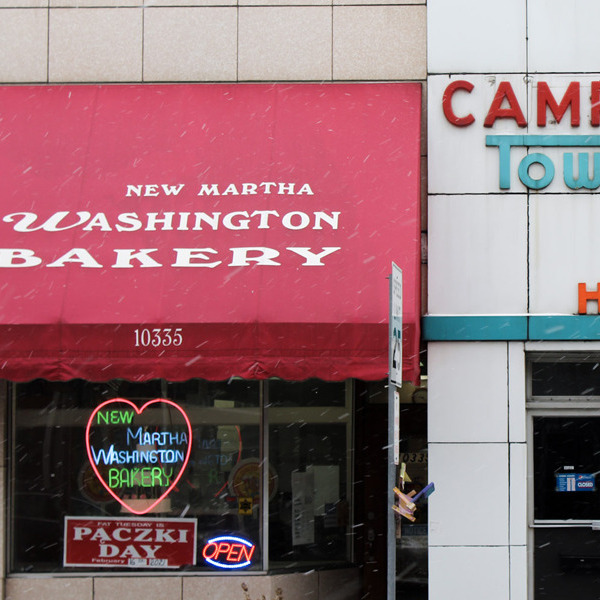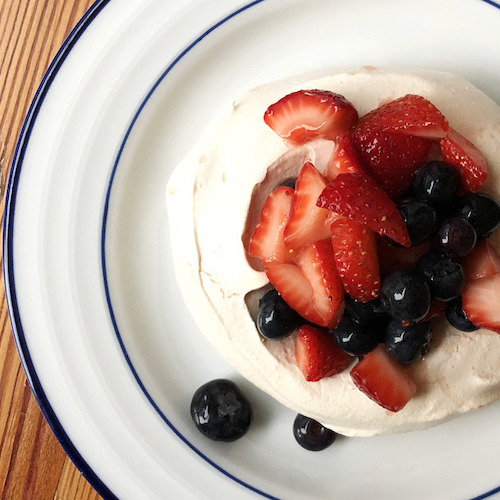For years, Karen Schwandt helped her mother make kuchen from an old family recipe, like many other kids in North Dakota. When her mother began to forget bits and pieces, she took over the tradition. Today, Schwandt runs Karen’s Kuchens, a Larimore-based outfit that’s taken her from selling kuchen out of the back of a van at a farmers market to shipping cakes across the U.S.
Kuchen (prounounced “ku-gen”) means “cake” in German, but it refers to something more specific in the Dakotas. You’ll find two versions: the standard, with a custardy filling and a fruit topping, and a variation called wedding kuchen, which is fruitless and thinner, with a crunchy crust. Both are most popular with Dakotans who, like Schwandt, claim descent from Volga Germans, also called “Germans from Russia.”
Kuchen (prounounced “ku-gen”) means “cake” in German, but it refers to something more specific in the Dakotas.
In the mid-1700s and early 1800s, Catherine the Great invited settlers from across Europe to colonize rural parts of Russia, including a stretch along the Volga River. She promised free farmland and an autonomous way of life, which attracted migrants who had experienced religious oppression and political strife in Germany. By 1869, more than 250,000 Germans lived along the Volga.
Then, in the late nineteenth century, the government began to revoke some of their special privileges, conscripting them into the military and pressuring them to assimilate. Groups of so-called Volga Germans left for the U.S., seeing an opportunity to reclaim their independence in the Homestead Act of 1862. They brought their food traditions with them, baking bierocks and kuchen on the Great Plains.
Kuchen, composed mostly of sugar, flour, and cream, was an affordable luxury for large farming families. They often enjoyed it at breakfast. Today, you’ll find it in pie cases and on groaning family dinner tables throughout the Midwest. It isn’t unique to the Dakotas, but it’s as much a taste of the states as loose meat sandwiches are of Iowa or Chicago dogs are of the Windy City. It’s been South Dakota’s official dessert since 2000.
You can get an authentic taste of the tradition wherever you are, no matter where you grew up, via mail-order providers including Schwandt and Lois Vander Wal, the owner of Grandma’s Kuchen in Ashley, North Dakota. Vander Wal takes orders online and sells through dozens of retailers in four states: Iowa, Minnesota, and the Dakotas. Schwandt ships via her own store and Goldbelly. If you’re feeling particularly ambitious, you can also find grandma-approved recipes in the dozens of German-Russian cookbooks collected by North Dakota State University.




